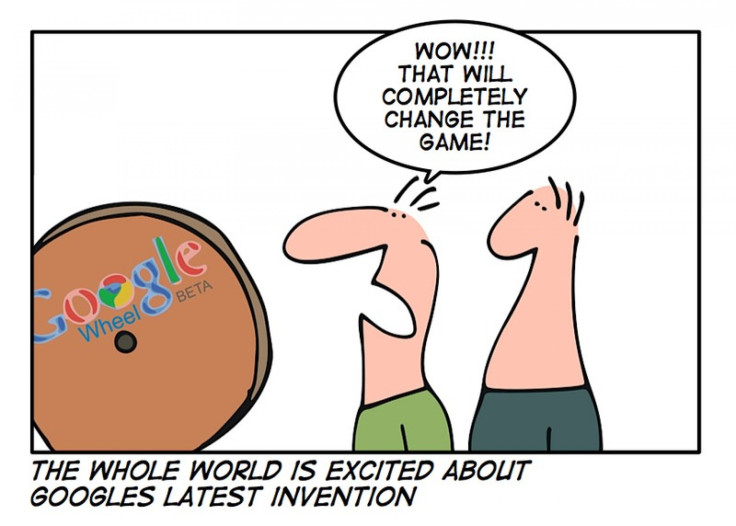Samsung Chromebook released today. A $499 cure-all for your technological ailments?

Today marks the day Chromebooks are available online in the U.S., U.K., France, Germany, Netherlands, Italy and Spain. More countries should follow in the coming months. In the U.S., Chromebooks will be available from Amazon and Best Buy and internationally from leading retailers.
On the Official Google Blog last month, Google praises the:
Startup: These are not typical notebooks. With a Chromebook you won't wait minutes for your computer to boot and browser to start. You'll be reading your email in seconds.
Storage: Your apps, games, photos, music, movies and documents will be accessible wherever you are and you won't need to worry about losing your computer or forgetting to back up files.
Battery: Chromebooks will last a day of use on a single charge, so you don't need to carry a power cord everywhere.
WiFi: And with optional 3G, just like your phone, you'll have the web when you need it.
Security: Chromebooks have many layers of security built in so there is no anti-virus software to buy and maintain. Even more importantly, you won't spend hours fighting your computer to set it up and keep it up to date.
What Google is doing is not recreating a new kind of OS, they're creating the best way to not need one at all, writes MG Siegler for TechCrunch.
This sounds like a panacea for all your computing needs, but can it really be for $499?
When the Samsung Chromebook was unveiled last month, Siegler commented, the initial thing you'll notice about the Samsung Series 5 is what a good first impression it makes. That's because the thing starts up nearly instantaneously. Google is claiming an 8-second boot, I think it might be even faster. Compare that to a Mac or PC which often takes several times as long... Even better is that when you hit the login screen and enter your Google credentials (assuming you have them, of course), everything in synced within seconds.
Some of us may already be familiar with Google's Android. Why is there a need for a new OS?
Google admits that there is some overlap there. But a key difference they don't mention is the ability to run on the x86 architecture. Android cannot do that (though there are ports), Chrome OS can and will. But more, Google wants to emphasize that Chrome OS is all about the web, whereas Android is about a lot of different things. Including apps that are not standard browser-based web apps...And no doubt HTML 5 is going to be a huge part of all of this. A lot of people are still wary about running web apps for when their computer isn't connected to the web. But HTML 5 has the potential to change that, as you'll be able to work in the browser even when not connected, and upload when you are again, writes Siegler.
What are the downsides then?
Still, Chrome OS takes some time to get used to, and it isn't for everyone. It can't run Skype, it can't run Photoshop, and it simply isn't a good machine for a power user. However, it's ideal for businesses that only need machines for data entry. Casual users may find some use out of the Samsung Chromebook, but they will probably be better off with an iPad 2 or an Android tablet, according to Ben Parr for Mashable. Parr admits, The device itself, though, is sleek and sexy. It's light, portable and pleasing to the eyes.
Scott Stein for CNET writes, Chrome OS might be lighter than Windows XP, but we'd still prefer more media storage space. At this price, you could also get a 11.6-inch Wi-Fi AMD E-350-powered ultraportable running Windows 7.
Here's CNET's review of the product:
Chromebook: Samsung Series 5 (3G)
Price: $499
Screen: 12.1 inches
Processor: Dual-core Intel Atom N570 (1.66GHz)
Storage: 16GB SSD
OS: Chrome
Weight: 3.3 pounds
Upside: Thin (0.79 inch); quick bootup (8 seconds); built-in 3G with an included 100MB per month of free data for two years; SD card slot; solid-state storage.
Downside: Browser-based OS reliant on Google's to-be-determined app strategy and offerings; extremely low amount of onboard storage compared with laptops; slower Intel Atom processor; not really a bargain next to comparable Windows laptops; requires near-ubiquitous broadband access.
Outlook: Slim size and quick boot time could make it a MacBook Air alternative, but a cheaper price tag and more versatile feature set would help it stand out from excellently valued Windows Atom-powered Netbooks.
© Copyright IBTimes 2025. All rights reserved.





















